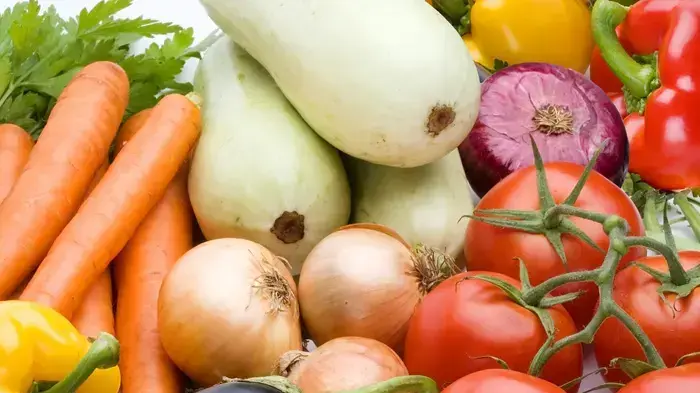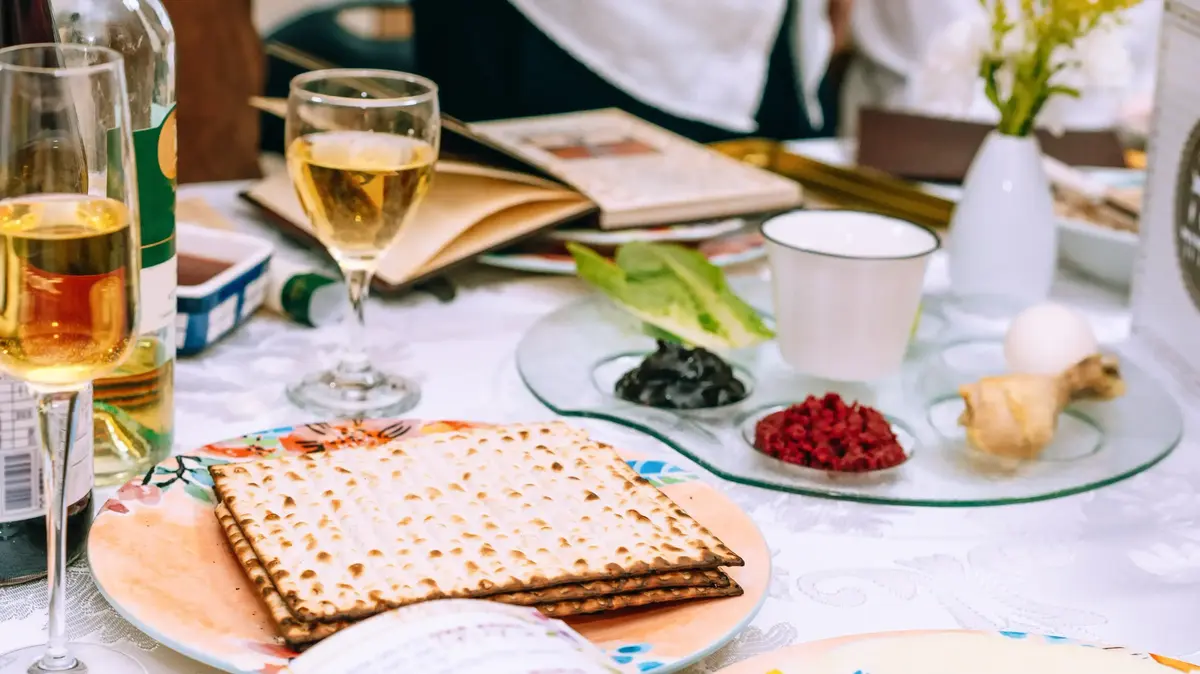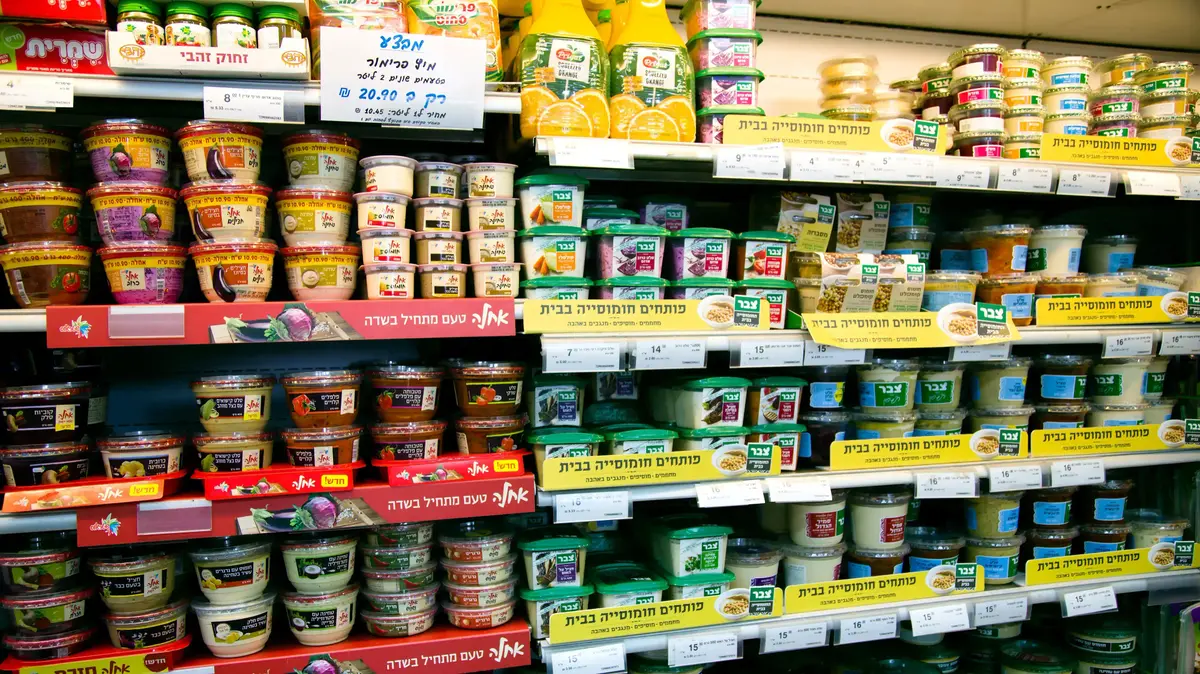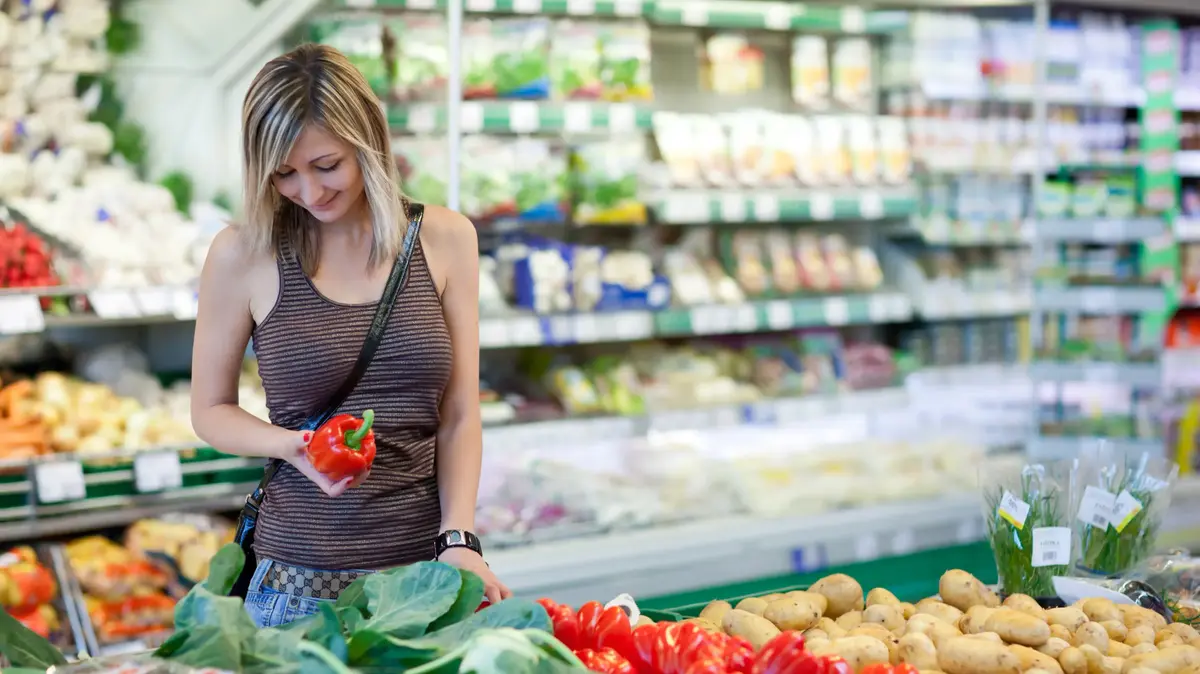Just before Passover: What are the most requested fruits and vegetables by Israelis (Photo: ShutterStock)
There is a lot of talk, both in the media and in general public discourse, about the issue of the cost of living.
The price increase in food products, housing, fuel prices, electricity and other areas of consumption that are bound by the human consumption basket, makes it difficult and burdensome for all of us to conduct ourselves economically.
The fruit and vegetable market is also linked to the issue as the price volatility in this category is affected by the seasons, the agricultural output, the supply and the demand and at the same time also by other factors and measures whose prices have become more expensive and naturally increased the price of the fruits and vegetables as well.
In preparation for the holiday, there is an increased consumption of fruits and vegetables.
Itzik Atar, CEO of the Shookit website: "Although the vegetable shelf has changed dramatically in recent years and the supply of different types is wider than ever, but during the holidays, the most popular vegetables will be the basic vegetables."
Summer fruits are still expensive, so in the holiday shopping basket we will see mainly fruits such as: apples, pears and citrus fruits (Photo: ShutterStock)
"This year, consumers behave differently"
Atar reflects that: "Around major holidays we see two waves of shopping. The first wave is about ten days before the holiday, when the first big purchase is made with the start of cooking, and a few days before the holiday, another purchase is made, which includes the completion, but this year we are witnessing a slightly different consumer behavior It's different than before, when the main shopping is postponed and takes place closer to the holiday. It's very possible that this is also related to the social reality of the last few weeks."
The basic vegetables, including: potatoes, sweet potatoes, dry and red onions, cucumbers, tomatoes, eggplants, leeks, red and hot peppers, are an essential ingredient for the big family meal, and from an inspection we also conducted with Mesk Payne, the increase in their sales is particularly noticeable two days before the holiday
eve
.
And as for the fruits, during this period the existing variety is limited, because this is the beginning of the appearance of the summer fruits on the shelves and their price is usually high due to the relatively low supply, therefore, together with the effects of the cost of living, in the consumption basket for the upcoming holiday, we will see mainly citrus fruits, pineapples, watermelon, Melon and dried fruit, used as dessert for the holiday meal.
More in Walla!
Strategic location, spectacular view and luxurious apartments: the intriguing neighborhood being built in the center
In collaboration with Aora Real Estate
Avi Payne, farmer, founder and owner of Payne Farm (Photo: Amir Porat)
Which fruits and vegetables do Israelis mostly consume?
Shookit, a chain of stores and an online website specializing in the sale of fresh vegetables and fruits, publishes the ranking of the best-selling fruits and vegetables in Israel ahead of Passover.
In the vegetable category
: the first place is occupied by the cucumber.
It is followed by a considerable margin, cherry tomatoes, red pepper, onion and lemon.
In the five brackets you can find: parsley, white cabbage, cilantro, mint and cluster tomatoes.
Other popular vegetables: parsley, sweet potato, yellow pepper and carrot.
"The ranking of the fruits is more interesting. Passover is a transitional season between winter and summer fruits, so we usually see a variety that reflects both seasons."
In the fruit category
: the banana is in first place.
After her by a considerable margin, clementine, orange melon, orange, Smith apple.
The five closes in the fruit category: Pink Lloyd apple, green pear, avocado, white pomelo and peach.
Regarding the prices, Shokit explains: "Since it is a large purchase, there will usually be a focus on vegetables and fruits whose prices are reasonable and do not burden the cost of the basket too much. This is also the reason why we do not often see summer fruits in the holiday basket. Fruits that are at the beginning of their season, therefore their price is usually per kg still high".
Shookit: ranking of the best-selling fruits and vegetables in Israel (Photo: Tzachi Kibenstein)
Are shortages expected for the holiday?
Also this year, the discourse surrounding the "expected shortage during the holidays" made headlines.
Before the holiday period, there is a "concern" of the large food chains about a shortage of one or another product, and accordingly, they make sure to import it into Israel out of the belief that if there is a shortage of a desired product, it is perfectly logical and reasonable to import it to make it accessible to consumers.
This time it is a shortage of tomatoes for Passover.
The claims for the expected shortage are the fact that Israel consumes about 40 thousand tons of imported tomatoes throughout the year (mostly from Turkey), and as of today, there is a shortage of tomatoes from Turkey due to the consequences of the earthquake, the weather and the Turkish government's export restriction on fresh produce.
According to Avi Payne, one can rest assured, "There will be no shortage of tomatoes during Passover because, unlike other periods of shortage, the warm winter combined with many plantings by Israeli farmers resulted in the fact that there is really no fear of a shortage of Israeli tomatoes during Passover this year and the local harvest will be sufficient."
Some think that the opening of the fruit and vegetable market in Israel to open imports without restrictions will result in a significant reduction in the prices of fruits and vegetables and curb the increase in prices, but in Payne's opinion, it is not!
And he explains: "Importing produce that is not in short supply will not lower the price for the consumer and vice versa. For example, produce such as apples and pears which have been imported for years, even during times when there is no shortage in Israel, are sold at a higher price than their Israeli counterparts."
"There is really no fear of a shortage of Israeli tomatoes at Passover this year, the local harvest will be enough" (Photo: ShutterStock)
buy smart
We asked Avi Payne what we should adopt when we come to purchase fruits and vegetables and we received his 2 pieces of advice:
First, make sure to purchase only Israeli produce
- if there is no Israeli fruit that season but there is import - that's fine, you can buy.
But don't buy a tomato from Turkey when there is an Israeli tomato at the time, or an apple from the USA if there is an Israeli apple. And no - there is usually no shortage of fresh produce in Israel (only specific fruits). Second, try to buy directly from the farmer - one of the most interesting
trends
that has happened in Israel in recent years They are the field of "direct sales". Farmers who are fed up with the middleman gaps imposed by the chains and marketers - offer their goods at wholesale prices to the consumer. Why is it worthwhile? The produce is fresh and therefore has a longer shelf life, so the value for the money you spend - increases. In addition, the produce sold directly from the farmer Cheaper prices are offered.
Fine Farm offers fresh and selected agricultural produce, directly from the farmer to the consumer, inside a huge industrial hangar.
Its two branches operate in Hatz Shafiim and Givat Ada.
Shukit, is a chain of stores and an online website for marketing high-quality and fresh Israeli produce of vegetables, fruits, as well as deli products, bakery, crackers, spices, pantry products and more.
Shukit was founded in 1994 by members of the Atar family, farmers from the Jezreel Valley who maintain relationships with other Israeli farmers to market their produce.
Of money
consumption
Tags
consumption
fruits
Fruits and Vegetables
vegetables
Vegetables and fruits
Food
retailing








